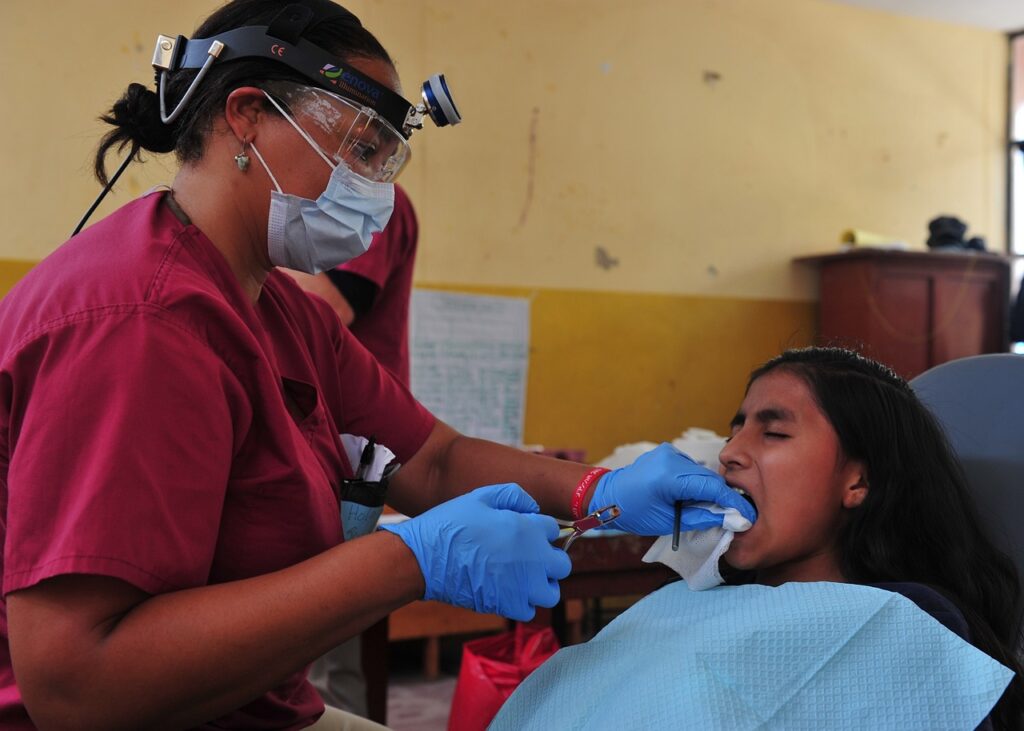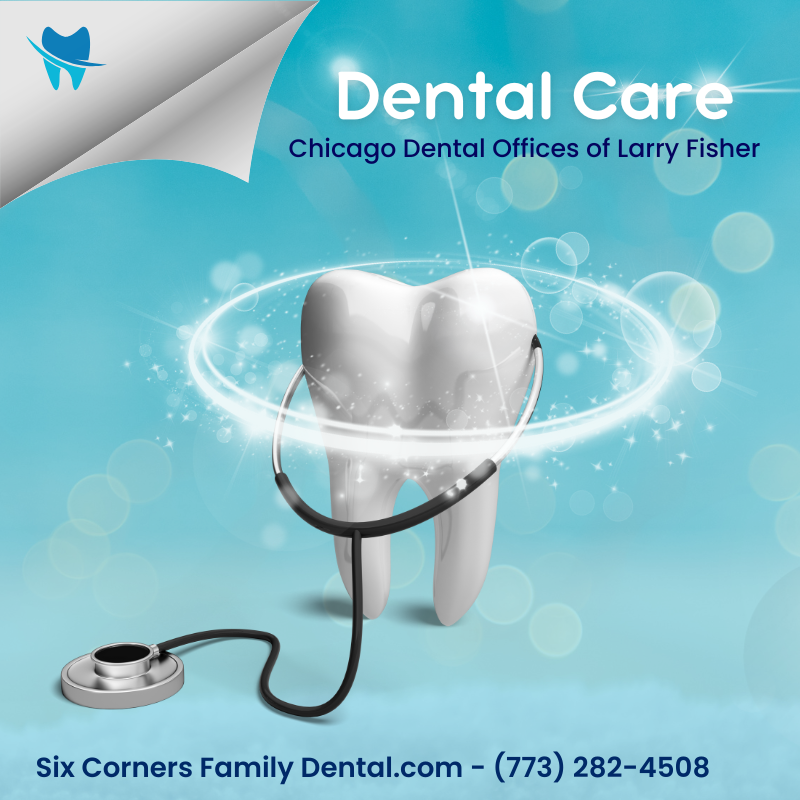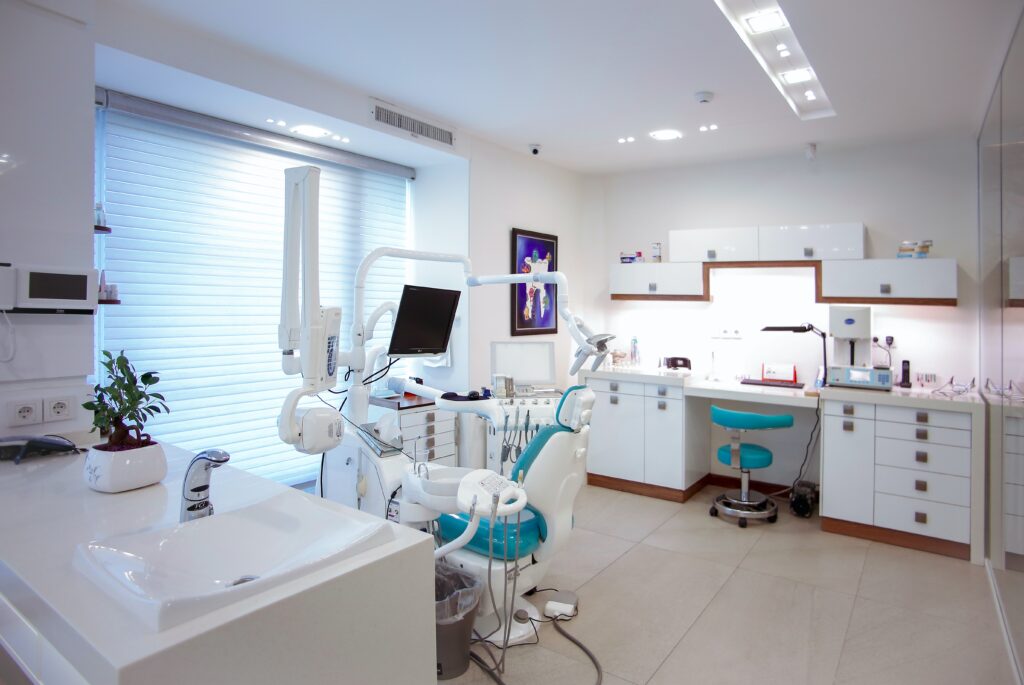If the thought of going to the dentist fills you with anxiety or fear, you’re not alone. Many people experience dental anxiety, but luckily, there are various options available to help calm your nerves and make your dental visit a more positive experience.
In this article, we will explore some of these options and provide you with valuable insights from Chicago dentist Larry A. Fisher of Six Corners Family Dental. From relaxation techniques to sedation dentistry, you’ll discover effective strategies to ease your anxiety and ensure optimal dental health. So, take a deep breath and let’s explore the world of dentistry with confidence and peace of mind.
Understanding Dental Anxiety and Fear
What is dental anxiety?
Dental anxiety refers to the fear or uneasiness that many individuals experience when faced with the prospect of visiting a dentist. This anxiety can range from mild nervousness to extreme fear and panic. Dental anxiety is a common phenomenon that affects people of all ages and backgrounds.
Causes of dental anxiety
The causes of dental anxiety can vary from person to person. Some individuals may have had a negative experience at the dentist in the past, such as a painful procedure or a perceived lack of empathy from the dental team. Others may have heard horror stories from friends or family members, reinforcing their fear of dental visits. Additionally, the sights, sounds, and smells commonly associated with dental clinics can trigger feelings of uneasiness and anxiety in some individuals.
Understanding dental fear
Dental fear is an intense and irrational fear of dentistry. It goes beyond general anxiety and can significantly impact a person’s ability to seek proper dental care. Dental fear is often deeply rooted in past traumatic experiences, such as a painful dental procedure during childhood. Individuals with dental fear may experience excessive sweating, rapid heartbeat, trembling, and even panic attacks at the thought of visiting the dentist.

Effects of Dental Anxiety and Fear
Impact on oral health
Dental anxiety and fear can have a detrimental impact on oral health. When individuals are unable to overcome their anxiety and avoid dental visits, they are more likely to neglect their oral hygiene routine and develop dental problems. Untreated cavities, gum disease, and other oral health issues can progress and lead to more serious complications, including tooth loss.
Avoidance of dental care
One of the most common effects of dental anxiety and fear is the avoidance of dental care. Many individuals with dental anxiety will go to great lengths to avoid visiting the dentist, even when they are in need of treatment. This avoidance can result in significant oral health problems, as well as an increased risk of developing painful dental emergencies.
Physical symptoms of anxiety
In addition to the emotional and psychological impact, dental anxiety and fear can manifest in a range of physical symptoms. These symptoms can include increased heart rate, sweating, trembling, shortness of breath, and even feelings of nausea or dizziness. The presence of these symptoms can further reinforce the anxiety and make the dental experience even more distressing.

Common Techniques to Manage Dental Anxiety
Communication and Patient Education
Effective communication between the dental team and the patient is essential in managing dental anxiety. Dentists should take the time to listen to their patients’ concerns and fears, providing reassurance and addressing any misconceptions. Patient education is also crucial in helping individuals understand the dental procedures, what to expect, and how to maintain good oral health.
Relaxation Techniques
Relaxation techniques can aid in reducing feelings of anxiety and promoting a sense of calmness before and during dental procedures. Deep breathing exercises, meditation, and progressive muscle relaxation are some commonly used techniques that can help patients relax and feel more at ease.
Providing a Supportive Environment
Creating a supportive and positive environment can help alleviate dental anxiety. Dental clinics can incorporate soothing music, comfortable seating, and pleasant aromas to enhance the overall experience for anxious patients. Additionally, dental professionals can use gentle and empathetic communication to build trust and create a safe space for their patients.
Advanced Techniques for Dental Anxiety Management
Oral Sedation
Oral sedation involves the administration of medication to help patients relax during dental procedures. The medication is typically taken in pill form and can induce a drowsy and calm state. Oral sedation is commonly used for individuals with mild to moderate dental anxiety and can be an effective option for managing fear and discomfort.
Inhalation Sedation (Laughing Gas)
Inhalation sedation, also known as laughing gas, involves the inhalation of a combination of nitrous oxide and oxygen. This technique induces a state of relaxation and mild euphoria, helping patients feel more comfortable during dental procedures. Laughing gas is fast-acting and has the advantage of wearing off quickly, allowing patients to resume their normal activities shortly after treatment.
Intravenous (IV) Sedation
Intravenous sedation involves the administration of sedative medication through a vein. This technique allows for a deeper level of sedation and is typically reserved for individuals with severe dental anxiety or those undergoing complex procedures. IV sedation is closely monitored by an anesthesiologist or a trained dental professional to ensure patient safety.
General Anesthesia
General anesthesia is a deep state of unconsciousness induced by medications, often administered through intravenous injection or inhalation. It is typically used for extensive dental surgeries or procedures that require the patient to be completely unaware. General anesthesia is administered and monitored by an anesthesiologist in a hospital or surgical setting.

Behavioral Therapies for Dental Anxiety
Cognitive Behavioral Therapy (CBT)
Cognitive Behavioral Therapy (CBT) is a psychological treatment approach that focuses on changing negative thoughts and behaviors associated with dental anxiety. This therapy helps individuals understand the irrational nature of their fears and provides them with coping strategies to manage anxiety. CBT can be conducted in individual or group sessions and has been shown to be effective in reducing dental fear.
Exposure Therapy
Exposure therapy involves gradually exposing individuals to the dental environment and procedures that trigger their anxiety. The exposure is done in a controlled and safe manner, allowing patients to confront their fears in a gradual and systematic way. Over time, exposure therapy can help desensitize individuals to their dental phobias and reduce their anxiety.
Hypnotherapy
Hypnotherapy is a complementary approach that uses guided relaxation and focused attention to achieve a heightened state of suggestibility. It can help individuals access their subconscious mind and address the root causes of their dental anxiety. Hypnotherapy can be a powerful tool in reducing fear, promoting relaxation, and instilling positive associations with dental care.
Alternative and Complementary Approaches
Acupuncture
Acupuncture involves the insertion of thin needles into specific points on the body to stimulate energy flow and promote relaxation. Some individuals find acupuncture to be helpful in reducing dental anxiety and stress. While the precise mechanisms of acupuncture are still being researched, many patients report feeling more calm and centered after a session.
Aromatherapy
Aromatherapy utilizes essential oils to create a calming and soothing environment. Scents like lavender, chamomile, and ylang-ylang are known for their relaxation properties and can be used in dental clinics to help patients feel more at ease. Aromatherapy can be experienced through diffusers, massage oils, or even scented towels.
Music Therapy
Music has a powerful impact on our emotions and can be used as a tool to distract and calm anxious individuals. Dental clinics can incorporate soothing and calming music in their treatment rooms to help patients relax and feel more comfortable during procedures. Personal headphones or speakers can be provided to allow patients to listen to their preferred music.
Virtual Reality (VR) Distraction
Virtual Reality (VR) technology can be used as a distraction technique to divert patients’ attention away from dental procedures. By immersing individuals in virtual environments, VR creates a sense of presence and engagement that helps reduce anxiety. Patients can choose from various virtual experiences, such as relaxing scenes, interactive games, or guided meditations.

Choosing the Right Option for You
Consulting with a dentist or specialist
If you experience dental anxiety or fear, it is essential to seek guidance from a dentist or specialist who understands your concerns. Schedule a consultation to discuss your specific fears, ask questions, and explore the available options for managing your anxiety. A dental professional experienced in treating anxious patients can provide personalized recommendations based on your unique needs.
Considering the severity of anxiety
The severity of your dental anxiety or fear will play a role in determining the most appropriate management technique. For individuals with mild anxiety, relaxation techniques, patient education, and a supportive environment may be sufficient to manage their fears. However, more severe cases may require advanced sedation techniques or behavioral therapies to ensure a comfortable dental experience.
Considering the specific dental procedure
The type and complexity of the dental procedure you require may influence the choice of anxiety management technique. Routine cleanings or simple fillings may only require mild sedation or distraction techniques. However, if you are undergoing extensive oral surgery or complex dental work, deeper levels of sedation or general anesthesia might be necessary to ensure your comfort and safety.
Reviewing potential risks and benefits
It is important to carefully review the potential risks and benefits of any anxiety management technique before making a decision. Each approach has its own considerations, including potential side effects, contraindications, and associated costs. Have an open and honest discussion with your dental provider to weigh the pros and cons and make an informed decision that aligns with your needs and preferences.
Importance of Regular Dental Visits
Preventing dental problems
Regular dental visits are crucial in preventing and detecting oral health problems early. By maintaining a consistent schedule of check-ups and cleanings, your dentist can identify dental issues in their early stages when they are easier to treat and before they cause significant discomfort or require more invasive procedures. Preventive care can help minimize the need for potentially anxiety-inducing dental treatments.
Early detection of oral health issues
Many dental problems, such as cavities, gum disease, or oral cancer, may not show noticeable symptoms in their initial stages. Regular dental visits allow your dentist to perform a comprehensive examination of your oral cavity, including X-rays, to identify any potential issues that may be developing. Early detection can lead to more effective treatment and better outcomes.
Maintaining overall well-being
Oral health is closely linked to overall health and well-being. Neglecting dental care due to anxiety or fear can have far-reaching consequences beyond just oral health problems. Poor dental health has been associated with various systemic conditions, including heart disease, diabetes, and respiratory infections. By prioritizing regular dental visits, you are taking an active step towards maintaining your overall health.
In conclusion, dental anxiety and fear can have significant impacts on both oral health and overall well-being. However, there are numerous techniques and approaches available to help individuals manage their dental anxiety and receive the necessary oral care. From communication and relaxation techniques to advanced sedation options and behavioral therapies, individuals can work with dental professionals to find the most suitable approach for their specific needs.
By seeking professional guidance, individuals can overcome their dental anxiety and ensure the maintenance of optimal oral health. Remember, regular dental visits are essential in preventing oral health problems and maintaining overall health, so don’t let anxiety hold you back from receiving the care you need.
🪥Chicago Dental Posts
🦷 Emergency Dental Care in Chicago
🦷 Dentist Open on Saturday Near Me
🦷 Best Dentist in Chicago Larry Fisher
🦷 View other Dental Blog Posts & FAQs

